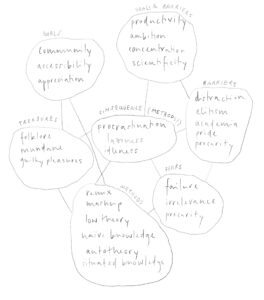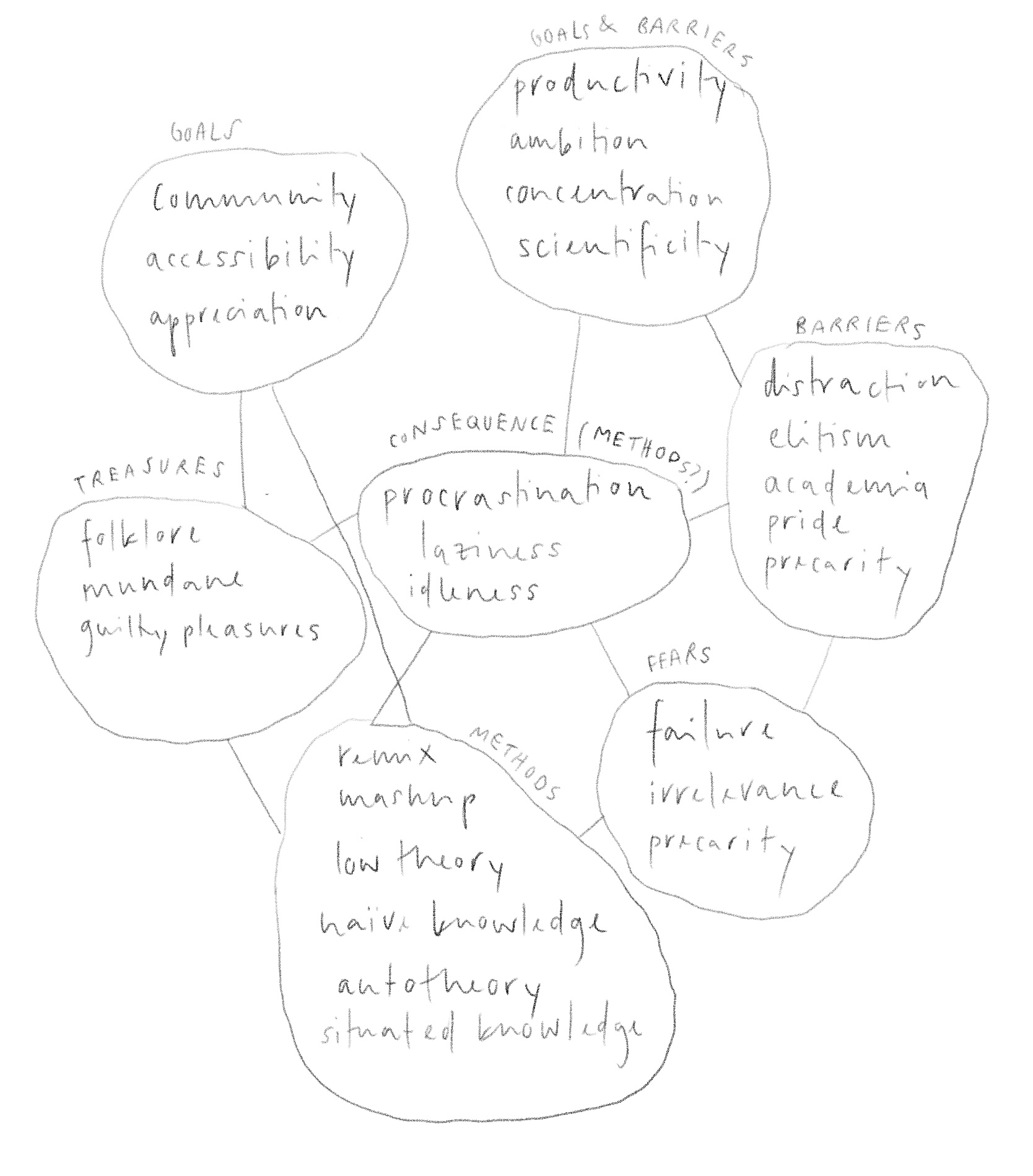Profound Procrastination
Profound Procrastination asks a lot of questions

What does “being productive” even mean?
Do I procrastinate because I am afraid to fail at my task?
Do I procrastinate because my task is a bit tedious?
Do I procrastinate because my physical and digital environments are too distracting?
Do I procrastinate because I am physically not able to concentrate for more than 20 minutes?
How can memes, comments, forums help us get valuable insights on what we think, read, and write?
In what way is looking at a meme that refers to an academic theory considered part of my academic work?
What does it mean to be an academic/researcher/scholar?
Who appreciates this work?
Who profits from this work?
How do I plan a career in academia?
What does it mean to have a career in academia?
Why do I want a PhD?
Would I want a PhD if we had basic income?
Would less people do a PhD if we all had basic income?
Would I still be allowed to teach?
Would my projects get funding?
Do I want to teach?
Do I want to do research?
In what system do I want to teach and do research?
Do I want to prove something by accomplishing a PhD?
Whose approval do I want?
Whose approval do I need?
Do I need the approval of a board, a professor, a system?
Do I want to get the approval of a board, a professor, a system?
Who decides whether my research is valuable?
What is academic failure?
What is an academic goal?
Is the goal having an original idea, an original thought?
What do I do to feel valuable?
When don’t I feel valuable?
Who can tell if I’m valuable?
Is being valuable a goal in life?
Is my pleasure valuable?
How much pleasure is valuable?
How does our self-worth correlate with the value we place on the products we consume or produce?
How much screen is too much?
How much Netflix is too much?
Why do I want to read more?
What do I want to read?
Who says what I should read?
What source qualifies for answering our question?
How do we make the distinction between high-value and low-value products and activities?
To what extent do these categories even exist?
Does discourse on social platforms loosen the theoretical canon of academia?
Do humorous products like memes take the edge off when working with these materials?
Does academic work get more inclusive and diverse because the material is more available?
How democratic are these media actually?
